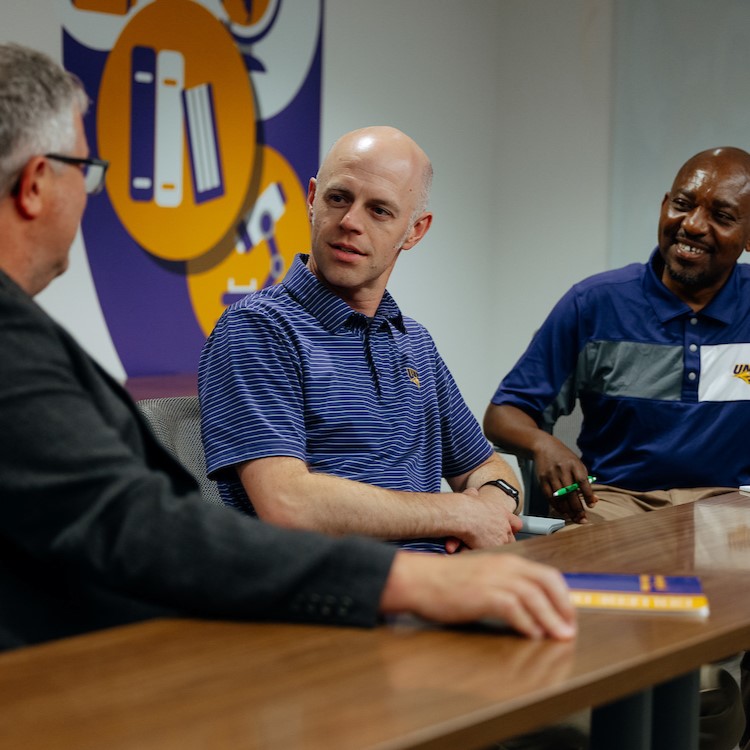Matt Townsley

Matt Townsley
Briefly describe your educational background.
My undergraduate degree is in math education from Wartburg College. While teaching high school math, I completed a master's degree in curriculum and instructional technology at Iowa State University. I obtained an advanced studies certificate in educational leadership from UNI and a doctorate from the University of West Georgia.
Briefly describe your career background.
For a combined fourteen years, I was a high school math teacher and district administrator in the Solon Community School District (Solon, IA).
Why did you choose this career path?
For so many, math is perceived as an inherited skill rather than something that can be learned. I loved seeing the light bulbs go on in teenagers' brains as they developed a love for math. Later, an opportunity presented itself to stay in the same school system (Solon, IA) and make a bigger impact through leading curriculum and school improvement. In that regard, district administration 'chose me' and I've never looked back.
What brought you to UNI?
While I was a district administrator, I served as an adjunct instructor for several universities. During this time, I developed a strong appreciation for teaching and mentoring the next generation of K-12 school leaders. When a position opened up at UNI to teach and mentor educational leaders full-time, it was hard to pass up because I had such a wonderful experience here as a graduate student myself.
What's your favorite part about UNI?
The personalized attention to students at UNI is second to none at a public university. In our program, we often say that our completers are graduating "into the UNI educational leadership family" because of the lasting relationships that continue beyond the final course assignment submission.
What is your greatest professional accomplishment?
As an educational leader in Solon, IA, we were recognized as a District of Distinction by District Administrator magazine, and multiple buildings were recognized as Model Professional Learning Communities by Solution Tree. I am incredibly proud of the way we build a collaborative, results-oriented culture emphasizing teacher voice.
If involved in research, what is your area(s) of interest? What drove your interest in this area? Any noteworthy or active publications or research projects in process?
As a former district administrator and secondary teacher, I had firsthand experience implementing and leading lasting grading reform. Resulting of this, I am a co-author of the book, Making Grades Matter: Standards-Based Grading in a Secondary PLC at Work (2020; Solution Tree).
My current research is focused on how and why schools change, particularly through the lens of grading practices. Current projects include examining state departments of education recommendations for grading during the COVID-19 pandemic-influenced spring emergency remote learning time period. In addition, a colleague and I are in the process of analyzing data from Iowa secondary school leaders describing their current and anticipated levels of adopting standards-based grading.
What does being student-focused mean to you?
Every one of our aspiring school leaders brings a wealth of knowledge to our graduate course discussions. Building upon their unique experiences to help them see "the balcony view" is what being student-focused is all about in our program.
We talk about helping students realize or even exceed their expectations and potential. What does it mean to you to be part of that process and see the outcome?
Our aim is to help educators become leaders of learning, service, and change in order to improve student learning. In doing so, many of our students see that this is challenging and complex work. Yet, the phone calls and emails we receive from our graduates several years after graduation are often the evidence we have to affirm they have exceeded their own expectations as building and system leaders.
What do you hope students learn from you?
I hope that students see clear connections between theory and practice. For every expert and idea we discuss in class, my intent is for students to apply it in their current and future contexts.
What advice do you have for prospective/current students to make the most of their time at UNI?
Get involved!
